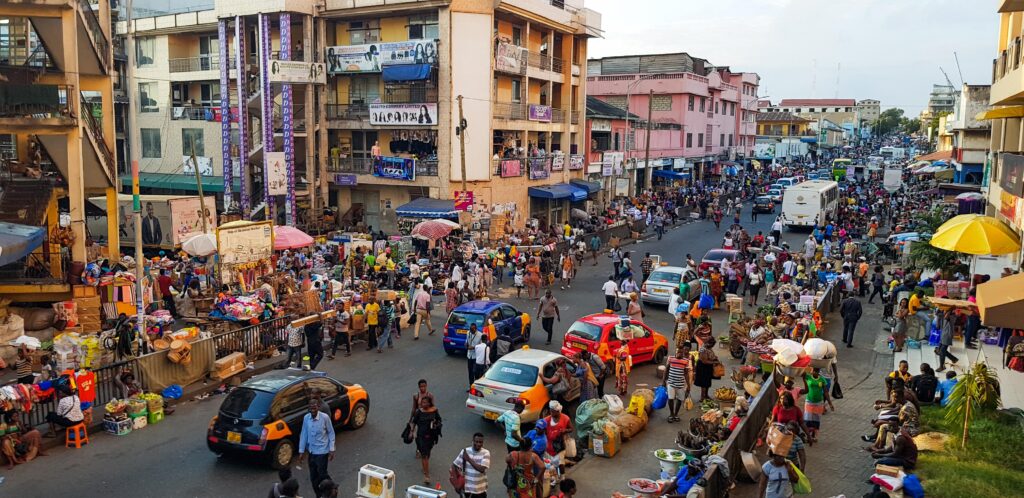Comprehensive Travel Guidance & Safety Tips for Visiting Ghana: Insights from Smartraveller
With West Africa gaining popularity among international travelers, Ghana stands out as a captivating destination brimming with rich heritage, diverse landscapes, and warm hospitality. Yet, like any global journey, understanding the safety landscape and cultural context is vital to ensure a smooth and rewarding visit. Recognizing this growing interest, Smartraveller—the Australian government’s official travel advisory platform—has refreshed its recommendations to assist visitors in navigating potential risks while fully embracing Ghana’s unique offerings. This article presents updated safety advice, health measures, and cultural etiquette essentials curated by Smartraveller to prepare both novice tourists and experienced explorers for an enriching experience across Ghana’s dynamic regions—from Accra’s lively streets to the tranquil shores of Cape Coast.
Exploring Ghana’s Varied Terrain and Cultural Tapestry
Ghana captivates travelers with its mosaic of natural beauty paired with deep-rooted traditions that narrate centuries of history. Stretching from the golden sands along the Gulf of Guinea to verdant highlands inland, each region offers distinct attractions:
- Lake Volta: Ranking among the world’s largest artificial lakes, it provides excellent opportunities for fishing excursions and scenic boat rides.
- Kakum National Park: Home to dense tropical rainforests featuring an exhilarating canopy walkway suspended high above the forest floor.
- The Kwame Nkrumah Mausoleum: A serene memorial park honoring Ghana’s first president with beautifully landscaped gardens.
- Elmina Castle: A UNESCO World Heritage site offering profound insights into West Africa’s colonial past through guided tours.
Apart from breathtaking sights, immersing yourself in local culture is essential when visiting Ghana. The country pulses with vibrant festivals celebrating music, dance, and art that reflect its resilient spirit. Visitors are encouraged to engage actively by experiencing:
- Percussion Performances & Dance Workshops: Participate in or observe traditional drumming sessions that form a core part of community celebrations.
- Cultural Artisan Markets: Discover handcrafted textiles like kente cloth alongside intricate wood carvings representing ancestral stories.
- Culinary Delights Sampling: Taste authentic dishes such as waakye (rice and beans), kelewele (spicy fried plantains), or light soup at local eateries or street stalls.
| Activity | Location | Optimal Visiting Period |
|---|---|---|
| Trekking Adventures | Akwapim-Togo Range (Mount Afadja) | Avoid rainy season; best between September–November |
| Sandy Beach Retreats | Brenu Beach near Busua | Drier months: December–March offer ideal conditions |
| Cultural Festivals & Events | Nationwide (e.g., Homowo Festival) | Mainly celebrated between August–September but varies regionally |
Practical Safety Advice for Urban Exploration & Rural Excursions in Ghana
Navigating both cityscapes like Accra or Kumasi as well as remote villages requires vigilance combined with thoughtful preparation. In metropolitan areas where crowds gather—markets such as Makola Market can be bustling—petty theft including pickpocketing remains a concern; therefore securing valuables discreetly is advisable. When commuting within cities or between towns after dark, prioritize licensed taxis or ride-hailing services over informal transport options for enhanced security.
The countryside offers stunning vistas but also demands caution due to limited infrastructure in some zones. Inform trusted contacts about your itinerary if you plan on exploring less frequented paths or national parks where encounters with wildlife such as monkeys or snakes are possible. Some practical tips include carrying basic medical supplies for minor injuries; staying hydrated under intense equatorial sun; wearing protective clothing against insects; and consulting locals regarding safe routes before venturing far afield.
Health Measures & Cultural Etiquette To Enrich Your Visit To Ghana
Your health should be prioritized before departure by ensuring vaccinations against yellow fever—which is mandatory upon entry—as well as hepatitis A and typhoid fever are up-to-date according to current WHO guidelines.[1]. Malaria prophylaxis remains strongly recommended given endemic transmission zones throughout much of southern Ghana.[2]. Packing essentials such as insect repellents containing DEET formulations helps reduce mosquito bites significantly while sunscreen protects against strong UV exposure year-round near the equator.
Respectful interaction enhances connections during your stay: Ghanaians typically greet one another warmly using handshakes often followed by placing a hand over their heart—a gesture symbolizing sincerity.
When attending religious sites like mosques or churches—or participating in traditional ceremonies—modest attire covering shoulders and knees demonstrates respect.
Dining customs emphasize communal sharing using only the right hand when eating staple foods served from shared bowls—a practice rooted deeply in social harmony values.
| Cultural Practice | Explanation |
|---|---|
| Greeting Rituals td >< td >Handshake accompanied by touching one’s heart signifies genuine respect . td > tr > | |
